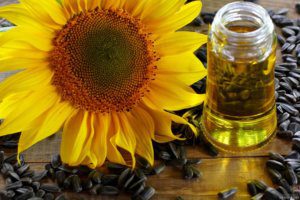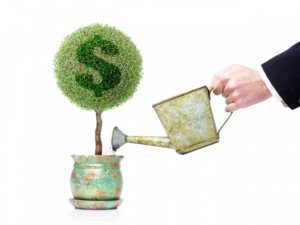
Kernel, one of the largest Ukrainian agrarian groups, intends to reach EBITDA of $495 million by 2021 due to doubling exports, as well as investments and strategic acquisitions.
According to the company’s financial report on the website, Kernel plans by 2021 to increase production of bulk oil to 1.877 million tonnes, sales to 1.753 million tonnes. The company plans to achieve such figures through the construction of a new processing plant or the acquisition of a local player in Western Ukraine.
In addition, the group plans to increase sales of bottled oil in monetary terms to $150 million, keeping 131 million liters in natural terms, to increase throughput to 8.9 million tonnes through the commissioning in 2019 of a new grain terminal, Transbulkterminal, as well as raise grain sales to 8 million tonnes, the storage capacity to 5 million tonnes.
The company’s net profit for the last four quarters (April 2017-March 2018) was $35 million, which is 5 times less than in the 2017 financial year. Revenue for this period was $2.124 billion, EBITDA stood at $232 million, which is 2.1% and 27.3% respectively less than the figures for 2017.
Kernel is the world’s largest producer and exporter of sunflower oil, the leading producer and supplier of agricultural products from the Black Sea region to the world markets.

The volume of services rendered by enterprises in Ukraine in January-March 2018 amounted to UAH 177.8 billion, which in comparable prices is 3% more than the level of the same period in 2017, according to the State Statistics Service of Ukraine.
According to its data, the volume of services rendered to the population was 21.8% of the total volume of services provided.
The service said in the fourth quarter of 2017 the volume of services rendered by Ukrainian enterprises grew by 0.6%, in the third quarter by 3.1%, in the second quarter by 7.7%, and in the first quarter by 14.8%.

Capital investments in Ukraine in January-March 2018 increased by 37.4%, while in January-March 2017 by 21.4%, the State Statistics Service has reported.
Capital investments in Ukraine in 2017 increased by 22.1%, in the first nine months of the year by 20.7% and in the first half of the previous year by 22.5%.
According to the service, in the first quarter of 2018 some UAH 89 billion of capital investments were used (excluding the temporarily occupied territory of Crimea, Sevastopol and Donbas), which is 37.4% more than the volume of capital investments for the corresponding period of 2017.
In terms of regions, the largest increase in capital investments in the first quarter of 2018 compared to the same period in 2017 was recorded in Donetsk (2.3 times), Chernihiv (2 times) Zhytomyr (64.6%), Zakarpattia (49.9%), Cherkasy (47%), Ivano-Frankivsk (44.6%), Rivne (53.3%), Cherkasy (47%), Sumy (39.6%), Vinnytsia (37.3%), Volyn (36.7%), Poltava (26.4%), Dnipropetrovsk (21.3%), Ternopil (20.6%), Kirovohrad regions (16.5%), and Kyiv city (61.1%).
According to statistics, capital investments during the reporting period decreased in Luhansk (by 23.9%) and in Chernivtsi regions (by 0.5%).
In terms of sectors, the highest growth of capital investments in the first quarter of this year was recorded in information and telecommunications (2 times), financial and insurance activities (80.2%), transport, warehousing, postal and courier activities (69.3%), operations with real estate (59.1%), state administration, defense and compulsory social insurance (56%), education (50.8%), wholesale and retail trade, repair of motor vehicles and motorcycles (49.9%), industry (46.3%), information and telecommunications (2 times), professional, scientific and technical activities (23.7%), scientific achievements and developments (25.5%), in the sphere of art, sports and entertainment (14.7%), and agriculture (10.2%).

UEFA President Aleksander Ceferin thanked Kyiv city for the high level of organization of hosting UEFA Champions League 2018 finals, the press service of Kyiv City Administration has reported.
“I would like to thank Kyiv and Mayor Vitali Klitschko for the excellent organization of the final matches of the Champions League. It should not be forgotten that this is the largest sport event of a global level that is not easy to organize. Yesterday, and in previous days, there was not a single mistake. Thank you for your hospitality, I am convinced that at least half of the fans will return to Kyiv again,” he said at a meeting with Klitschko on Sunday.
Ceferin said that after the Champions League final, Kyiv will be able to organize any event of this scale.
Klitschko, in turn, said that everything went “very well.”
“Yes, we were worried because Kyiv and Ukraine had not hosted such events before, but we did our best, we prepared carefully, and we managed to do this,” the mayor of Kyiv said.
He thanked the law enforcers for coherent and professional work. “I thank the top officials of the Ministry of Internal Affairs, the National Police and the Security Service for their work during this big event, and thank each law-enforcer who provided order in the city. This was extremely important,” Klitschko said.